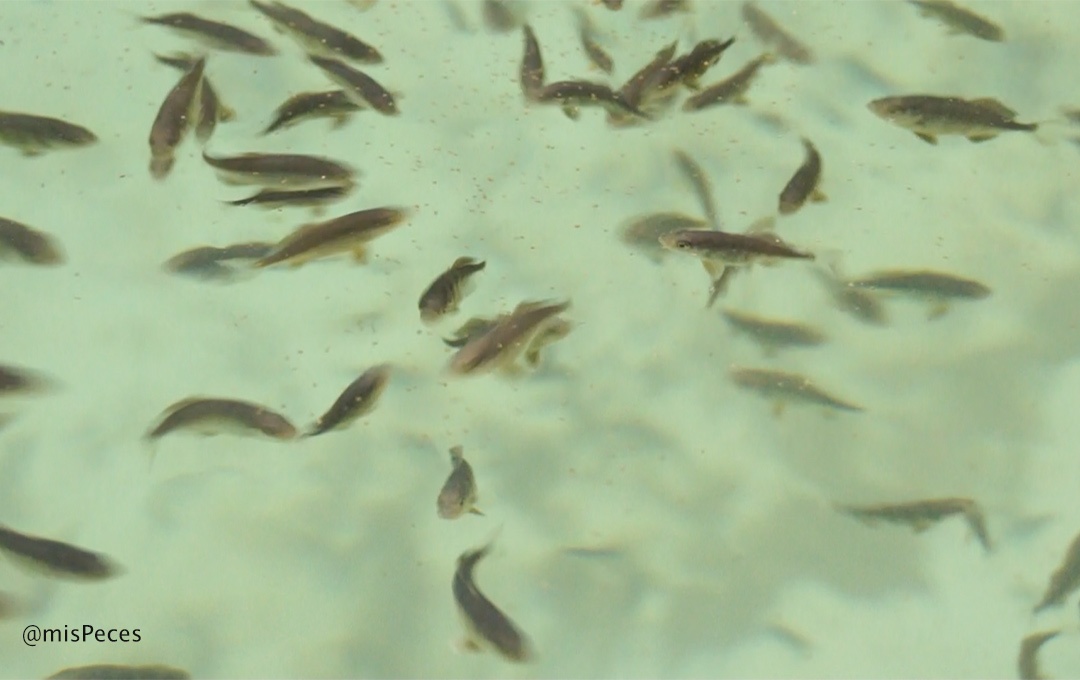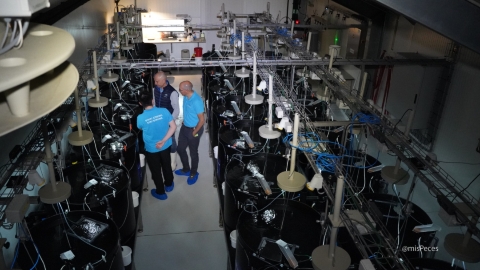
Spanish researchers have led two pivotal studies, published in the scientific magazine Aquaculture, provinding valuable insights to advance the farming of greater Amberjack (Seriola dumerili), a species with high commercial value.
The first study focused on developing sustainable diets by combining enzymatically treated plant protein with algae-based nutraceuticals, aiming to reduce reliance on fishmeal. The researchers demonstrated that this approach enhances the growth and health of juveniles by optimizing nutrient bioavailability, reducing oxidative stress, and improving muscle composition.
The second study examined how environmental factors, particularly water temperatures, affect the effectiveness of these diets. The findings revealed that optimal temperatures improve digestion and metabolism, unlocking the full potential of this species in aquaculture systems.
Two Studies Supporting the Future of Greater Amberjack Farming
This first study, conducted at the University of Cádiz, Spain, within the Institute of Marine Research (INMAR) and the International Campus of Excellence of the Sea (CEI-MAR), used plant proteins processed with an enzymatic treatment comprosing phytases and carbohydrases. These enzymes break down the cell walls of plant-based ingredients, eliminate anti-nutritional factors, and improve digestibility. Additionally, an algae-based nutraceutical additive, developed by LifeBioencapsulation SL was tested, showing long-term benefits such as enhanced protection against oxidative stress and improved intestinal adaptability to plant-based diets.
Meanwhile, the second study was conducted at the Instituto de Ciencias Marinas de Andalucía (ICMAN-CSIC), which is part of the Spanish National Research Council, and explored the impact of different water temperatures on the digestive physiology of greater Amberjack. Using Ussing chambers to assess intestinal functionality, the researchers found that optimal temperatures maximise digestive enzyme activity and nutrient absorption-key factors for the success of any aquaculture diet.
Complementary Insights for Sustainable Aquaculture
These two approaches complement each other by addressing both feed formulation and the environmental conditions necessary to optimize their effectiveness. Together, the findings underscore the importance of considering not only the nutritional aspects of fish diets but also the farming conditions that maximise the welfare and performance of high-value species like greater Amberjack.
These advancements have significant implications for sustainable aquaculture, reducing reliance on fishmeal, promoting environmentally friendly practices, and optimizing farming conditions for a more efficient and responsible production. The researchers emphasise the need for further integrated studies to tackle nutritional and environmental challenges in modern aquaculture.


